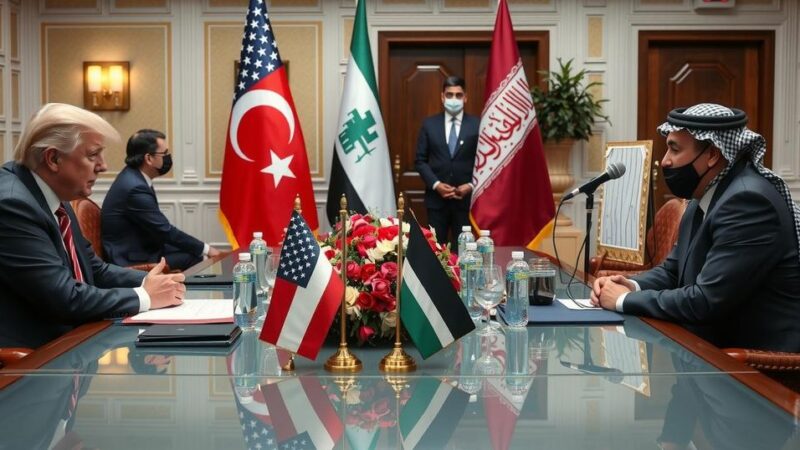Donald Trump has urged the United States to avoid involvement in the Syrian civil war as Islamist rebels advance towards Damascus. He criticized Obama for failing to act against Assad in 2013 following a chemical attack. As the conflict escalates, responses from Israel and U.S. officials highlight the precarious situation in the region.
In the wake of escalating tensions in Syria, President-elect Donald Trump has advocated for the United States to refrain from involvement in the conflict. As the Islamist opposition makes significant gains near the capital, Damascus, Trump contends that the situation is complicated and ultimately not America’s concern. He criticized former President Obama for failing to uphold his 2013 pledge to act against the Assad regime in response to a chemical weapons attack. Alongside these remarks, developments in Syria have prompted responses from Israeli defense forces and U.S. officials, highlighting the precarious balance of power in the region.
The Syrian civil war, which began in 2011, has devolved into a prolonged and complex conflict involving various factions, including the regime led by Bashar al-Assad, opposition groups, and extremist entities like Hayat Tahrir al-Sham. Trump’s comments come at a critical juncture as Islamist rebels have made significant advances towards Assad’s stronghold in Damascus, creating a sense of urgency and uncertainty in international diplomacy. The conflict has drawn criticism for President Obama’s handling, particularly regarding military engagement and the consequences of failed red lines in policy.
In summary, Trump’s insistence on U.S. non-involvement in the Syrian civil war underscores a continuing narrative about past U.S. foreign policy mistakes. The escalation by Islamist forces into Damascus raises important questions about the future of the Assad regime and the broader implications for regional stability. As the situation evolves, the international community remains watchful, particularly regarding humanitarian impacts and the potential for further conflict.
Original Source: www.foxnews.com







